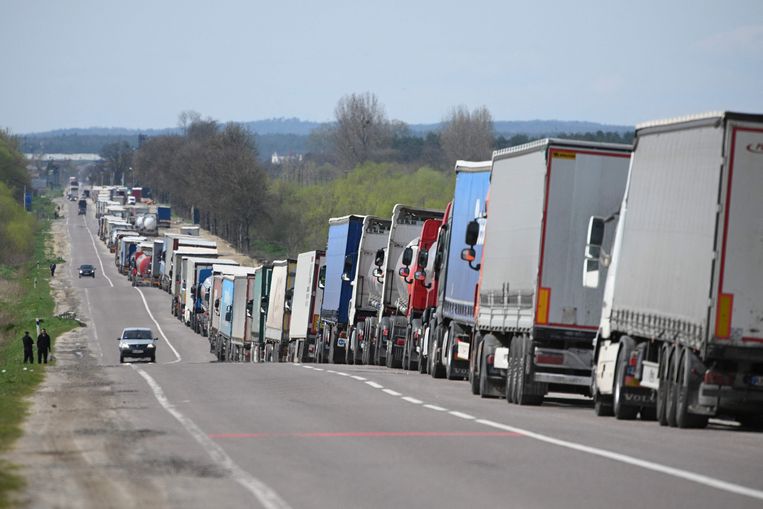The European ban on imports of Ukrainian agricultural products has not been extended. Like Hungary and Slovakia, Poland, while usually considered a loyal ally of Kiev, decided to stop products coming from Ukraine at the border. This cannot be viewed in isolation from the elections.
The European Commission decided on Friday that Ukraine can once again export agricultural products via EU countries. In May, a temporary ban was imposed on the import of grains and other food products after five countries neighboring Ukraine complained. Grain supplies in particular from Ukraine had a devastating impact on domestic markets in Poland, Slovakia, Hungary, Romania and Bulgaria.
After investigating the markets in those five countries, Brussels saw no reason to further block imports and allowed the ban to expire. Ukraine also promised to regulate exports in a way that does not hamper the economies of neighboring countries. President Zelenskyy expressed his gratitude to Commission President Ursula von der Leyen. “This is an example of cooperation between the European Union and Ukraine based on unity and true trust,” he wrote on the X website.
About the author
Arnot Le Clercq is the Central and Eastern Europe correspondent for De Volkskrant. Lives in Warsaw.
Immediately a Polish cloud passed over the sun. Prime Minister Morawiecki spoke of the “bad decision for Polish farmers.” Last week, the country already hinted that it would halt production of agricultural products on its own if the European embargo was not extended. This spring, Poland also led the resistance against Ukrainian agricultural products.
On Friday evening, Warsaw put its words into practice: with the emergency law, Poland itself now prohibits the import of agricultural products from the neighboring country, even though this contravenes European regulations. Slovakia also announced an independent ban, as did Hungary, which is taking advantage of the situation to stop imports of more than twenty products.
Only Bulgaria has agreed to resume trade: Parliament approved this last Thursday. Romania is awaiting Ukrainian plans to regulate exports, but the government was already under pressure this weekend from its farmers: even if Ukraine’s ally, Poland, imposes a ban, Romania should do the same, their argument goes.
Winning the election is not certain
For the government in Warsaw, usually an ally of Kiev, there is more at stake than simply “protecting the Polish countryside,” as the trade embargo characterizes. Within a month, parliamentary elections will be held in Poland. The ruling Law and Justice Party may lead in the opinion polls, but winning the elections is not certain.
The fact that the European import ban ended just before the elections led to unrest in government circles. About 40 percent of Poles live outside the city. In the countryside, PiS now faces competition from other parties, such as the far-right Confederation party. It is not only about the voice of the farmers, it is also of symbolic importance: who will defend the Polish countryside? Ukrainian Prime Minister Denis Shmyhal accused the Polish government of engaging in “political populism” ahead of the elections.
Ukrainian agricultural products are a sensitive issue in the EU’s immediate neighbors. With its large-scale and relatively cheap production, Ukraine is an agricultural giant that can compete with its neighbors’ agricultural economy with one hand behind its back. Since the country is not a member of the European Union, trade restrictions have always applied to cheaper Ukrainian grain. But since Russia blocked Black Sea ports, Ukraine has been scrambling to find alternatives to export grain and feed the world.
Pills are much cheaper
The transit of agricultural products through neighboring countries through the so-called Corridors of solidarityThis had to be solved. However, since last year, products such as grains have also ended up on the domestic market of neighboring countries, meaning that Polish farmers suddenly can no longer sell their grains.
Moreover, the Polish government did little at the time to properly organize the transit and prevent grain from reaching its markets until it was too late. Some Polish farmers, tempted by the initial high prices, speculated on their grain supplies.
It is still unclear how the new Polish import ban will take shape. When Poland suspended the pills earlier this year, there were long traffic jams on the other side of the border. Polish Prime Minister Morawiecki said on Saturday that he wants to establish a “cooperation model” with Ukraine in the near future.

“Infuriatingly humble social media buff. Twitter advocate. Writer. Internet nerd.”








